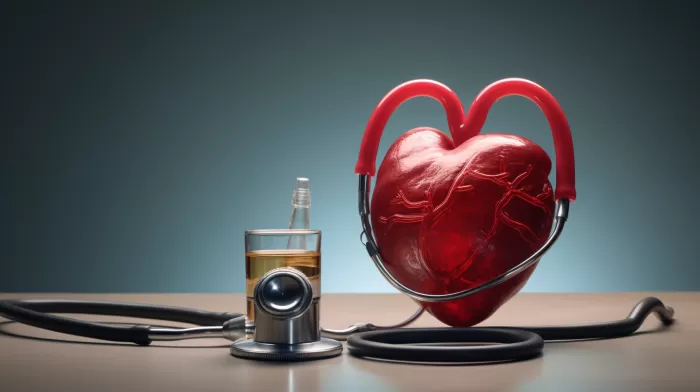If you’re concerned about your heart and oral health, it’s time to steer clear of the one common beverage that can cause havoc to both: soft drinks. Consuming these sugary beverages and junk food can lead to periodontal disease, an oral issue that attacks your gums, destroys your teeth, and damages the surrounding bone. But it doesn’t stop there.
Researchers at the University of Cambridge in Great Britain have discovered that the chronic infection caused by gum disease also triggers inflammation that results in the arterial blockages of atherosclerosis. In other words, your love for soft drinks and junk food might be putting your heart at risk.
Soft Drinks and Periodontal Disease: The Unhealthy Connection
Periodontal disease, also known as gum disease, is a severe oral health issue that begins as an inflammation of the gums, caused primarily by the bacteria in plaque. Over time, it can progress to the point where the bone and structures that support the teeth are destroyed.
Soft drinks and junk food tend to contain high amounts of sugar, which can lead to an increase in plaque, bacteria, and eventually periodontal disease. According to researcher Ahmed Rashid, “Junk foods often contain a great deal of sugar, and the effect this has on oral health may be an important additional mechanism by which junk food elevates the risk of CVD (cardiovascular disease). Among different types of junk food, soft drinks have raised particular concerns and are the main source of free sugar for many individuals.”
The Dangerous Domino Effect: From Gum Disease to Atherosclerosis
Here’s why your heart may be at risk when you consume sugary soft drinks and junk food:
- Not just the sugar: While the sugar found in these items can cause damage to your gums, it’s also important to consider the other unhealthy components that contribute to the development of periodontal disease and its related health problems. Junk food is often high in fats and salt, both of which can exacerbate inflammation and contribute to poor health overall.
-
Inflammation: As periodontal disease progresses, the gums become increasingly swollen and irritated. This widespread inflammation ultimately affects other areas of the body, including the delicate linings of blood vessels. The process of atherosclerosis, where arterial walls become narrowed and hardened due to a buildup of plaque, is accelerated by inflammation.
-
Bacterial Invasions: When gums are infected and inflamed, bacteria can easily enter the bloodstream and travel throughout the body. This increases the risk of various infections and further damage to the arteries.
-
Arterial Damage: Eventually, as bacteria and inflammatory substances spread to other areas of the body, the arterial walls can become damaged. This leads to the formation of plaque deposits and, eventually, the development of cardiovascular disease. Atherosclerosis is the principal cause of heart attacks and strokes, the leading causes of death worldwide.
Making the Switch: Swap Soft Drinks for Heart-Healthy Options
So, how can you protect your heart and oral health simultaneously? The answer is simple: begin by reducing or eliminating your consumption of soft drinks and junk food. Replace sugary beverages with healthier alternatives such as water, herbal teas, or naturally flavored seltzer.
Turning to whole, nutrient-dense foods instead of processed and high-sugar snacks will not only benefit your oral health but also provide vital nutrients to support your heart and overall well-being.
Keep in mind that regular exercise, adequate sleep, and managing stress are essential factors in maintaining cardiovascular health. These habits will also indirectly contribute to better oral health by promoting a strong immune system and overall well-being.
What About Diet Drinks?
If you’re thinking about switching to diet soft drinks to avoid sugar, think again. Artificial sweeteners found in diet beverages have been linked to various health concerns, such as weight gain, metabolic disorders, and an increased risk of type 2 diabetes.
As a rule of thumb, avoid consuming any beverage that contains added sugars or artificial sweeteners regularly. Instead, opt for healthier options like water, herbal tea, or seltzer with a splash of fruit juice for a hint of natural sweetness.
In Conclusion
Soft drinks and junk food consumption doesn’t just negatively affect your oral health; it can have far-reaching consequences for your heart as well. By making mindful choices and focusing on overall wellness, you’ll be better equipped to protect both your heart and your teeth. So, the next time you’re reaching for that can of soda, remember the potential damage it can cause, and choose a healthier alternative to quench your thirst.



